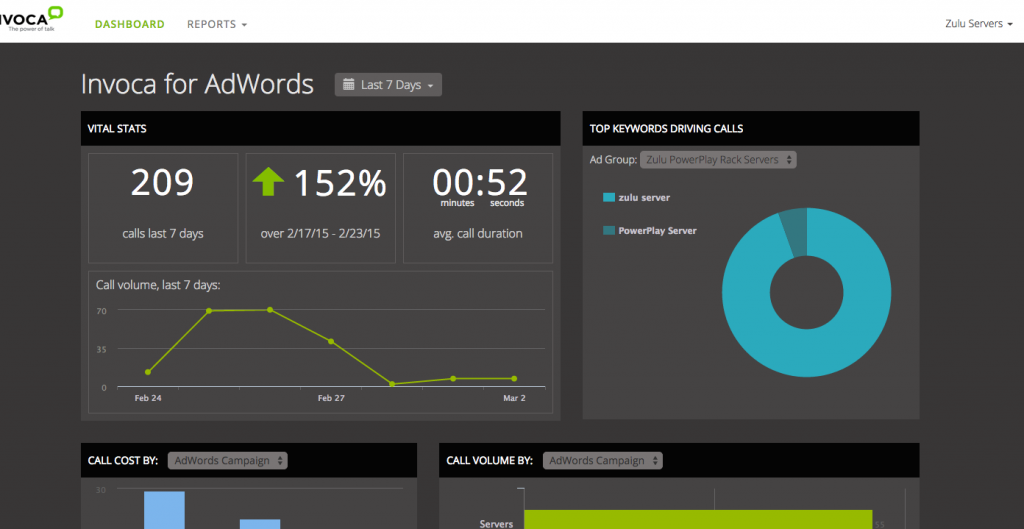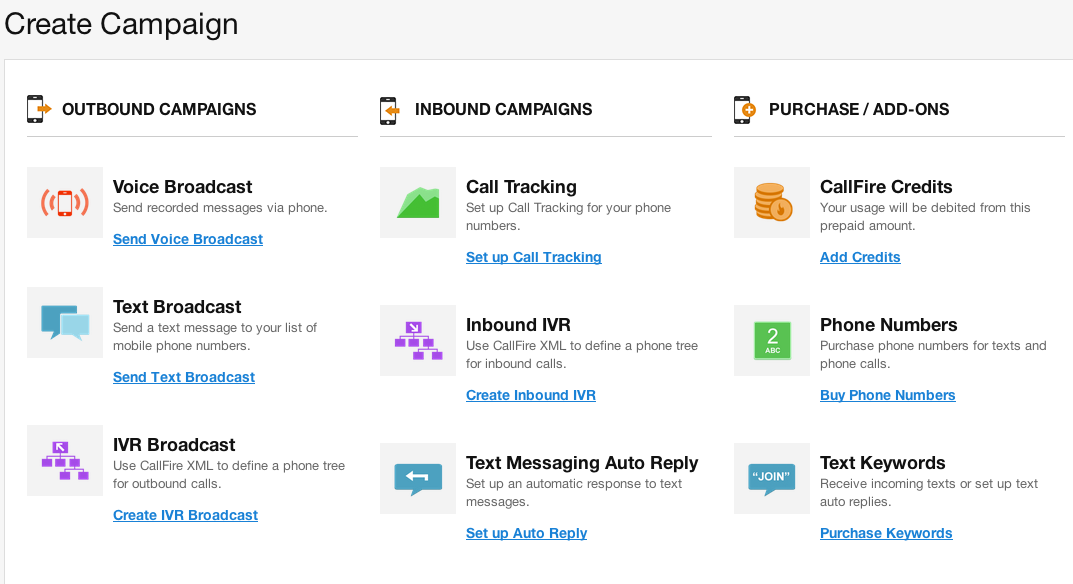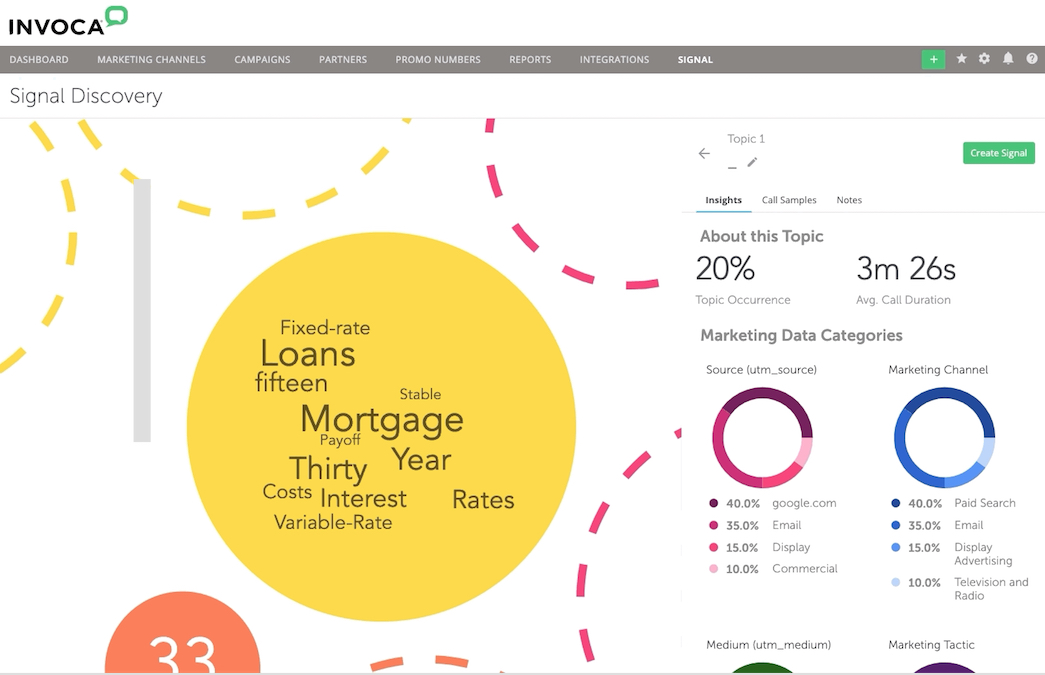You just launched a digital campaign two days ago. The phones just won’t stop ringing, and inquiries have been pouring in. Your digital team is all-smiles as they monitor online activity.
Then, you realize there’s no system in place to monitor the phone calls nor the information that connects the callers to the campaign you just launched.
A quick search through the web yielded an answer: install a call tracking software. Another search yields a long list of brands. What is call tracking software anyway, and what should you be looking for in one? If you’re a small or medium-sized business, should you even care?
![]()
Call Tracking Software Table of Contents
- What Is Call Tracking Software?
- List of Top Call Tracking Software
- How Call Tracking Software Works
- What Are the Benefits of Call Tracking Software?
- Types of Call Tracking Software
- What Are the Potential Issues with Call Tracking Software?
- Factors to Consider when Purchasing Call Tracking Software
- Trends in Call Tracking Software
What Is Call Tracking Software?
Call tracking software records information on incoming telephone calls with technology that enables the tracking of phone calls to be associated with performance-based advertising, supplying analytic information on the calls.
It lets you keep track of campaigns that drive calls to your business, attributing local and toll-free numbers to your advertising, whether online or offline, landing pages, social media exposure, search, etc.
List of Top Call Tracking Software
Here are some of the popular call tracking software available in the market today. Check out their features and pricing before you make a shortlist:
- AgileCRM – call tracking and recording with built-in CRM for comprehensive monitoring. The basic plan for 10 users is free. Paid plans start at $8.99.
- CallFire – with ease of use as one of its hallmark features, CallFire is a very popular self-service voice marketing solutions among US & Canadian companies. Flexible plans on offer include a 6-cent per minute/text Pay As You Go option; the most affordable plan starts at $99 good for 2500 minutes of calls or text. Free trial available.
- CallRail – Used and trusted by over 160,000 agencies and companies, this popular platform provides an all-in-one solution that takes care of a multitude of tasks, from call tracking to online form submissions. Call tracking services start at $45. A 14-day free trial lets you test drive the software before you buy it.
- CloudTalk – the choice of more than 2,500 companies like DHL. Virtual call systems let you streamline your business communications fast. Wallboard gives you visibility of group tasks, trends, etc. Free trial available. Paid plans start at $15 per user monthly billed annually.
- EngageBay – very affordable and very simple to use tracking software with built-in CRM tools. Free for 15 users. Paid plans start at $8.99.
- Invoca – an AI-powered call tracking platform, Invoca is used by companies, such as Samsung, Blue Shield, and SunTrust. Tracks and provides granular analytics for attribution and a better understanding of your callers. Pricing is by quote.
- Nextiva – boasts of three suites to fit different needs: Business Communication, Customer Relationship, Team Collaboration. Fits needs of SMB but also scalable for enterprises. Business phone service plans start at $19.95.
- Phonexa – a scalable and customizable cloud-based platform that boasts of unique accounting functions, insightful data analytics, and reporting. It has a Lite plan for data analytics, and reporting starts at $100 per month. Prices per platform vary. A free account is available.
- RingBa – an enterprise-level call tracking for call centers, enterprises, and professional marketers, Ringba offers a free basic account as well as a free trial. Paid plans start at $99 per month. Custom plans are priced on a tier pricing scheme.
- RingDNA – an AI-powered platform used by some of the most widely-known companies, such as HP, Amazon Web Services, etc. Advanced features such as Intelligent Dialer help sales staff to make more calls. Pricing is by quote.
How Call Tracking Software Works
Call tracking solutions records the digital marketing source of the call, the number called, the caller’s geographical location, time of incoming call, sometimes, even the phone call conversation in some regions.
The data is employed to create reports on the following:
- Caller name
- Caller location or address
- Missed calls
- Return/repeat callers
- Unique callers
- Frequency of calls by city and area code
This information can be used to monitor the effectiveness of advertising campaigns, comparing report results before and after the campaigns were run.
What Are the Benefits of Call Tracking Software?
As the name suggests, call tracking software is used to keep track of how callers found your business and what prompted them to call. As your company is engaged in a variety of digital marketing efforts, the use of the software is meant to collect pertinent caller data and make sense of the information to improve or refine your marketing efforts. Here are some of the benefits of call tracking software and the reasons why you should invest in it:
Know the ROI for your marketing efforts
Being able to assign a unique phone number to the digital channels your company is tapping allows you to track and understand which ones are making the most returns for your marketing money. That way, you can weed out the inefficient ones and reallocate your budgets to the more effective channels to further enhance their effectiveness.
Allows you to recalibrate your marketing strategy
Getting to know your market more through the analysis of the data collected through the call tracking software means having the money to refine your marketing strategy. An example will be modifying your target market age range if you find out that callers responding to your ad are older than originally strategized.
Refines your messaging
Strategies such as split testing a landing page can help inform you of which marketing message is more effective in reaching your target market.
Provides a big picture of your marketing efforts
Using a call tracking software lets you have a complete view of how your total marketing efforts are performing. In addition to digital analytics (organic searches, page views, etc.), call tracking gives you a clearer view of your marketing campaign’s effectiveness.
Call tracking can be used in conjunction with other marketing efforts:
- Pay per click campaigns – to determine which keywords are working and which are not
- Digital ad campaigns – using different telephone numbers on every ad can let you see which one performs the best.
- Organic searches – helps you know which landing pages are leading to inquiries/calls.
Generates new business leads
The use of call tracking software can help you track conversions as well as determine which channels generate the most conversions. One study revealed that almost two-thirds of all website visitors complete their purchases offline. Call tracking can help you monitor that online lead on exactly which web page the caller visited that prompted him to make the call.
Some think call tracking software is just for marketers and big companies. Still, in reality, it can also offer significant benefits for small companies that rely heavily on phone calls to generate business or receive inquiries, e.g., home service providers, dental clinics, etc. Other businesses that will benefit much from the insights provided by a call tracking software include insurance companies, healthcare providers, educational institutions, travel, and hospitality companies, among others.
Types of Call Tracking Software
There are four kinds of call tracking software. The points of differentiation include whether the software is internet/web-based or telephone server-based and how the software functions.
Call-back function
This is an internet-only solution where the company sets up an ad to prompt a potential lead to provide his telephone number. The call-back tracking software captures the information while the company sets up a call with the sales lead. A browser cookie saves the information on where and when the lead found the online ad once the lead inputs his info.
Call number tracking
A telephone server-based service that provides a company with multiple numbers for tracking multiple on- and offline marketing efforts. The multiple numbers are meant to help marketers know which channels are most effective in garnering phone leads.
Dynamic call tracking
This service enables marketers to program websites to swap telephone numbers for each user as the site loads. Similar to the multiple numbers in call number tracking service, this allows marketers to have a degree of control of which number is displayed to a potential lead according to predetermined criteria.
Dynamic call tracking can either be channel-based or of the unique-session tracking type. Channel-based tracking means capturing information on leads according to the channel (ex. Bing, Google AdWords, organic traffic) where the lead found their business. A unique phone number is assigned by the channel-based software to track that particular channel.
Unique session tracking captures information on a potential lead’s session on a website even as it assigns a unique number to each session during a set period. The unique session tracking determines the location on the website where the potential was at the time he made the call. The purpose is to make a connection as to which content, keyword, etc. was crucial in prompting the lead to call.
Static number tracking
In static number tracking, the company advertising allocates different telephone numbers for each ad channel (magazine, newspaper, TV, billboard). This kind of tracking is more in line with traditional marketing efforts.
What Are the Potential Issues with Call Tracking Software?
Call tracking software has many benefits for marketers and businesses alike. Still, there are some concerns that you may need to know beforehand.
Reluctance to change phone number
Some companies, particularly small businesses, are concerned with potential problems if they change their longtime numbers since it’s the one familiar with longtime, regular customers.
The thing is, utilizing a call tracking software is not really about changing numbers but rather using a new tracking number. Old customers can still reach you through your old number. Besides, as a New York Times study revealed, not a lot of people memorize telephone numbers anymore in the age of mobile phones. Also, more people search the internet and dial the number(s) based on their searches anyway.
Concerns that it may hurt SEO
Marketers may, at times, air their concern regarding Google’s NAP consistency and how call tracking may cause inconsistencies that can hurt their SEO. The fact is, Google does not penalize companies for their call tracking DNI.
Factors to Consider When Purchasing Call Tracking Software
To help guide you in choosing the best call tracking software for your business, we’ve identified several factors you may want to consider before purchasing:
- Ease of use – is it easy to install? To use? If you’re implementing tracking across your marketing and sales teams, ease of use will go a long way.
- Dashboard navigation – at times, a dashboard’s intuitiveness and usability will not be obvious until you come up with different scenarios and test them against the layout.
- CRM integrations – are you already using a CRM program? Then your call tracking software should integrate with it. In that way, all details from the system’s caller profile can be integrated with your contact records.
- Caller profiles – at the very least, your software should enable you to get caller profiles capturing data that you should know–location, the device used, time of call, etc.
- Analytics – being able to view real-time analytics can improve your ability to customize the call experience.
- Scalability – choose the software that can grow with your company. Check the costs as well if the ROI is still significant at higher levels.
- History – does it give access to insightful reporting tools, monitoring conversion rates, as well as measuring ROI?
- Customization – your company is unique; your software should be flexible and customizable to meet your unique needs.
- Tracking keywords – does your software allow you to know if a caller contacted you because he clicked on your website based on an organic search using specific keywords?
- Call recording – this ability gives you and your team an opportunity to review and learn from conversations with actual callers.
- Call routing – your call tracking software either has an IVR system or integrates with others; this feature ensures that calls are intelligently routed to the proper person, department, or team.
Trends in Call Tracking Software
Automation rules
The use of automation is permeating every aspect of doing business, and that includes the realm of call tracking. Leaving the rigors of attending to time-consuming tasks means you have more time to strategize, to see a clearer picture of your marketing efforts.
Automation is especially helpful in two regards: first, in sending conversion tracking efforts to your company’s marketing tech stack, such as HubSpot, Google Ads, etc., and second, utilizing tools that result in instant communications with customers, the moment they signify interest in your service or product.
Personalization to the fore
Tools such as “conversation intelligence,” which is the ability to see, know, and respond to signals in verbal communications, will be used to improve and further refine how businesses interact with customers and create more tailored, personalized messaging.



